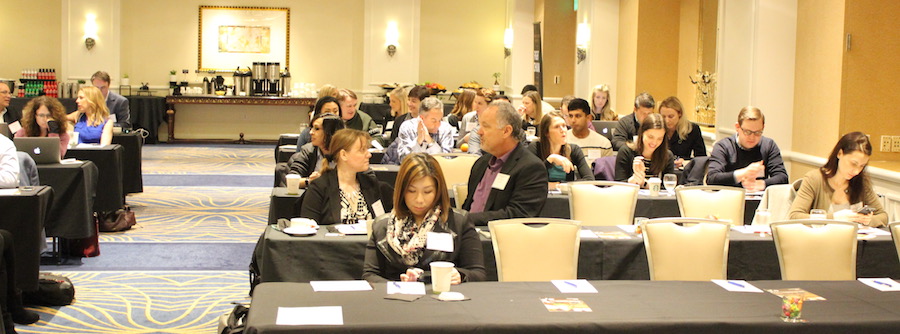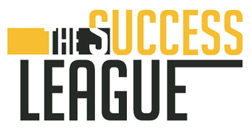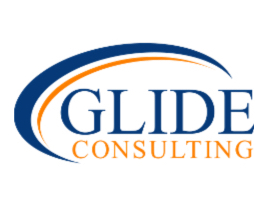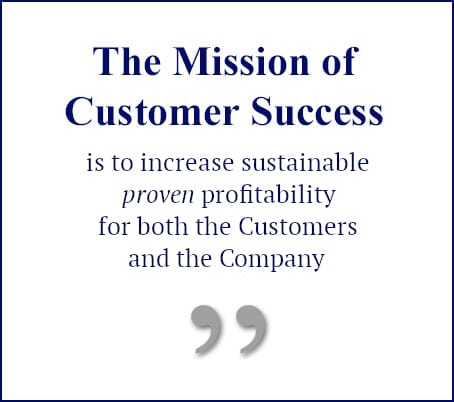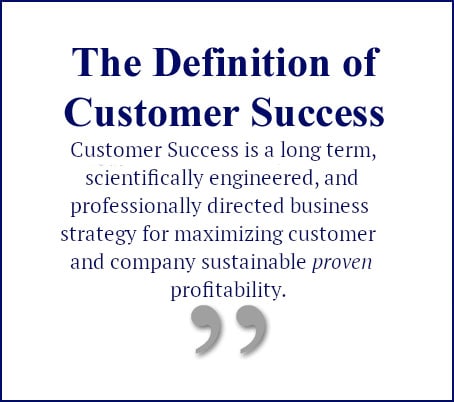April 8th 12:00 – 7:00 PM
Registration Check-In and Conversation: 12:00 – 1:00
The Profitability Blueprint:
The Mission of Customer Success is to increase sustainable proven value for both the Customers and the Company. While the majority of Customer Success groups have become directly involved with managing income streams and profitability over the past 5 years, there has been little real discussion to date about the issues of actually proving the sustainable value of Customer Success to either the Customers or to the Company. It’s time for that conversation to start.
The 2019 Customer Success Standards Initiative Research survey asks: How many additional income channels does your company have beyond your primary product? The next question is about an increasingly vital issue: Which of the following income/revenue channels are either completely owned/managed by the Customer Success team, or the credit is shared between the CS team and other departments?
Questions
 What’s involved in actually charging customers for Customer Success services? How do you talk to customers openly about the ROI they are receiving from the continuing relationship with your company? And get them to acknowledge it?
What’s involved in actually charging customers for Customer Success services? How do you talk to customers openly about the ROI they are receiving from the continuing relationship with your company? And get them to acknowledge it?
It’s much easier to turn a customer into a bigger customer than it is to turn a lead into a new customer. What does it mean to effectively manage the “customer funnel?”
Making sure your executive team understands the positive impact your CS team has on sustainable profitability is critical. What are the specific tactics and actions you can take to get the executive team to commit the time, budget, resources and internal alignment you need?
Making a strong argument to secure more resources isn’t impossible. It just requires a deeper dive into the numbers to ensure your investment makes financial sense. What is the true cost of hiring, and how should you position your resource needs in terms of ROI?
How have companies positioned Customer Success as a Revenue Organization? What’s involved in scaling such a group? What needs to be reported, and to whom?
The Profitability Blueprint is the result of over 8 years of research conducted by The Customer Success Association and the expertise of people who have “been there and done that.” Join us in Boston to explore what the answers might look like in your company.
Sessions: 1 pm – 5 pm
Best Practices: Optimizing the “Forgotten Funnel”: Turning Customers into Bigger Customers
Kia Puhm, CEO: DesiredPath Inc.
For most companies, there are two funnels – a marketing funnel that begins with, say, website traffic and ends with a qualified lead, and a sales funnel, that begins with leads and ends with a closed opportunity. As sales and marketing teams are being consolidated into a hybrid “revenue” function, we’re seeing these two funnels collapse into one. Yet while this may look like progress, it’s wholly insufficient for the modern revenue organization. Why? Because it
omits the customer funnel or, more accurately, the “forgotten funnel.”
A widespread obsession with funnel optimization has created a forest-for-trees scenario, in which leadership focuses at squeezing incrementally more value out of the pre-sales process at the expense of capitalizing on the hiding-in-plain-sight opportunity presented by existing customers. It’s much easier to turn a customer into a bigger customer than it is to turn a lead into a new customer. And yet …
This session will define “the customer funnel” and help attendees imagine ways to increase revenue by applying common pre-sales concepts to a post-sales audience.
Kia Puhm
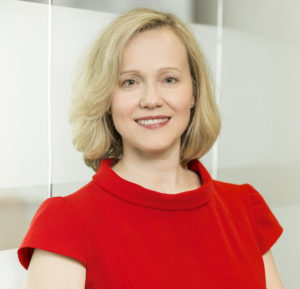 A frontierswoman in the Software-as-a-Service Customer Success industry, Kia Puhm has extensive experience building world-class practices that accelerate business growth. Prior to founding DesiredPath, Kia held chief positions at Oracle, Eloqua, Day Software (Adobe), Intelex Technologies, and Blueprint Software Systems.
A frontierswoman in the Software-as-a-Service Customer Success industry, Kia Puhm has extensive experience building world-class practices that accelerate business growth. Prior to founding DesiredPath, Kia held chief positions at Oracle, Eloqua, Day Software (Adobe), Intelex Technologies, and Blueprint Software Systems.
Based on over 24 years of expertise, Kia developed the Intelligent Framework™ (driven by industry first metrics and benchmarks) to provide clients with a disciplined, sustainable and scalable approach to increasing customer value and long term loyalty.
In 2005, while working with enterprise content management firm Day Software, Kia was named one of Switzerland’s top 50 highest ranking women in business by Swiss publication Basler Zeitung. She is also a former member of the Canadian National Swim Team, national record-holder in the women’s 200-metre backstroke and world top 10 ranked swimmer.
Kia holds a Bachelor of Applied Science in Computer Engineering from the University of Toronto.
Best Practices: Executive Support for Building a Profitable Customer Success Practice
Jason Whitehead, CEO: Tri Tuns LLC
Getting and maintaining full executive support is essential for ensuring the future of your customer success program. Making sure your executive team understands the positive impact your CS team has on profitability is critical. The challenge is many executives don’t fully buy-in to this and are unwilling to commit the resources you need to be successful.
This session examines the actions you can take to get your executive team to commit to building out a highly-effective and profitable Customer Success service in your organization. It examines key challenges and misconceptions you need to help your executives overcome to get and maintain their support for operating your customer success team in a revenue generating capacity . Specific tactics and actions you can take to get the executive team to commit the time, budget, resources and internal alignment you need will be presented.
Jason Whitehead
 Jason is a passionate thought leader in the field of customer success and software user adoption. Jason’s 20+ years of experience leading technology implementation and adoption programs has given him the expertise to help organizations overcome the largest challenge they face – getting people to use technology to deliver results. Jason has delivered numerous customer success and software adoption training programs. He is also the co-host of a popular podcast and webinar series called, “The Jasons Take On…” that addresses a variety of customer success issues.
Jason is a passionate thought leader in the field of customer success and software user adoption. Jason’s 20+ years of experience leading technology implementation and adoption programs has given him the expertise to help organizations overcome the largest challenge they face – getting people to use technology to deliver results. Jason has delivered numerous customer success and software adoption training programs. He is also the co-host of a popular podcast and webinar series called, “The Jasons Take On…” that addresses a variety of customer success issues.
Jason has a master’s degree in information systems from the London School of Economics, a master’s degree in organization development & strategic human resources from Johns Hopkins University, and a bachelor’s degree in business administration from George Washington University.
Case Study: Oracle
Peter Armaly, Sr. Director and Advisor, Customer Success
Only the customer can say whether a vendor’s customer success engagement practice offers service of high value. The onus is therefore on the vendor to both deliver a high value service and to prove it through the regular communication of empirical based reporting to the customer. This entails data collection, health monitoring, clear customer business goals, the means to measure progress, and an open channel for collecting both active and passive customer feedback. In this session, Peter will describe how Oracle designed a practice to deliver on this approach.
Peter Armaly
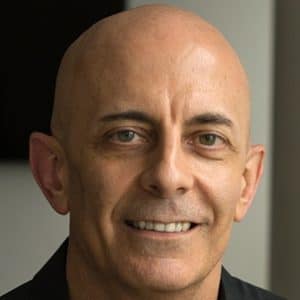 Peter is responsible for program design and execution of skills enablement for Oracle NA SaaS Customer Success. He also conducts industry and competitor research; owns responsibility for the Voice of the Customer (VOC) program; internally and externally evangelizes the direction the organization is headed in Customer Success; strategizes with his peer senior leaders and helps improve Oracle’s Customer Success capabilities and offerings. Finally, Peter is an accomplished writer about customer success and speaks on various customer-centric topics at customer and industry events.
Peter is responsible for program design and execution of skills enablement for Oracle NA SaaS Customer Success. He also conducts industry and competitor research; owns responsibility for the Voice of the Customer (VOC) program; internally and externally evangelizes the direction the organization is headed in Customer Success; strategizes with his peer senior leaders and helps improve Oracle’s Customer Success capabilities and offerings. Finally, Peter is an accomplished writer about customer success and speaks on various customer-centric topics at customer and industry events.
Case Study: Mentor Collective
George Boyar, Head of Customer Success
To ensure long-term sustainable growth, it is important for Customer Success professionals to be fluent in the language of profitability. This case study will explore two attempts to scale a CS function at the same company: one a failure, and the other a success. Attendees will leave the session with actionable best practices on how to grow their own CS functions and turn their teams into a revenue generating branch of the company. The session will also cover a list of easily avoided mistakes to keep in mind.
George Boyar
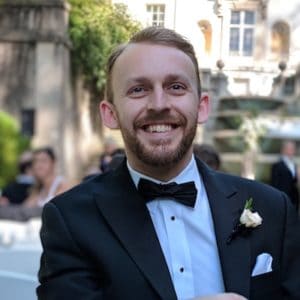 George is an ex-Bain consultant turned entrepreneur. He joined Mentor Collective as the first employee to help people adapt to change by partnering with universities to connect every student with a personalized mentor. George is currently a member of the senior leadership team, overseeing Customer Success, Customer Service, and People Ops.
George is an ex-Bain consultant turned entrepreneur. He joined Mentor Collective as the first employee to help people adapt to change by partnering with universities to connect every student with a personalized mentor. George is currently a member of the senior leadership team, overseeing Customer Success, Customer Service, and People Ops.
George is accredited in Chinese, Computer Science, and Entrepreneurship by Washington University in St. Louis. While there he also studied Design and Psychology.
Case Study: Fastly
Emily Garza, Director: Account Management
Customer Success as a Revenue Organization: As the main touchpoint for a customer post-sale, the Customer Success organization is primed to impact the ongoing revenue stream. While some CS teams shy away from numbers, owning revenue is a critical driver for long term organizational success. This session focuses on Fastly’s journey through Customer Success development and engagement with ongoing revenue.
Emily Garza
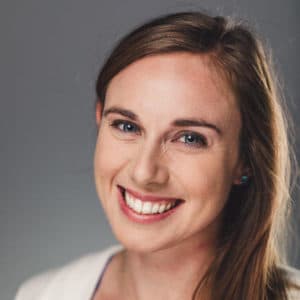 With extensive experience in direct sales and sales enablement, Emily Garza brings a holistic view of the customer journey to Customer Success. Emily has built and reshaped multiple functions, allowing her to offer a practitioner’s view on creating an impactful and scalable organization.
With extensive experience in direct sales and sales enablement, Emily Garza brings a holistic view of the customer journey to Customer Success. Emily has built and reshaped multiple functions, allowing her to offer a practitioner’s view on creating an impactful and scalable organization.
Best Practices: Headcount and ROI
Michael Harnum, CEO ESG
You need more resources to accomplish your goals, but Finance won’t approve your headcount request. Sound familiar?
Making a strong argument to secure more resources isn’t impossible. It just requires a deeper dive into the numbers to ensure your investment makes financial sense. In this session, we’ll look how to win leadership buy-in for the resources you really need. We’ll begin with the true cost of hiring, and then talk about how to position your resource needs in terms of ROI.
Michael Harnum
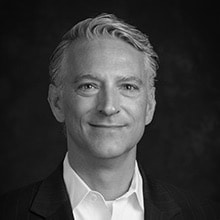 Michael Harnum is Chief Executive Officer of ESG. With more than 27 years of experience in the Technology and Services industry, Michael has proven to be an influential leader maximizing employee productivity, improving customer satisfaction and helping businesses grow. He is passionate about providing world class customer care and is driven to help organizations succeed.
Michael Harnum is Chief Executive Officer of ESG. With more than 27 years of experience in the Technology and Services industry, Michael has proven to be an influential leader maximizing employee productivity, improving customer satisfaction and helping businesses grow. He is passionate about providing world class customer care and is driven to help organizations succeed.
ESG delivers Customer Success as a Service, helping companies efficiently extend their customer coverage model with a pay-for-performance approach powered by people. ESG’s process-driven formula combines technology expertise with the power of human interaction to help clients catalyze untapped revenue and build value at every point throughout the customer life cycle.
Customer SuccessCon Boston 2019
April 8th 12:00 – 7:00 PM
